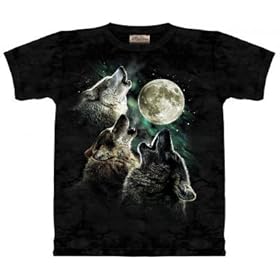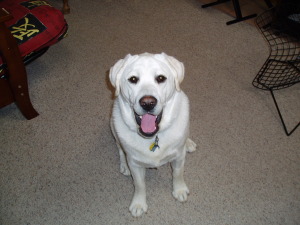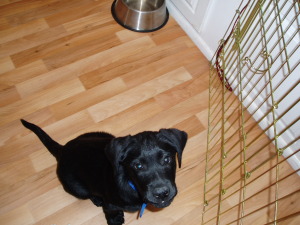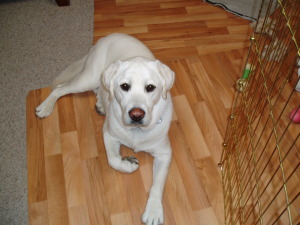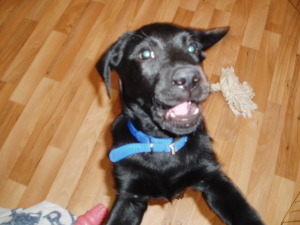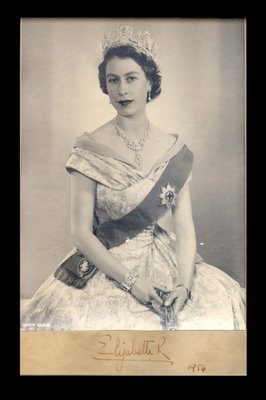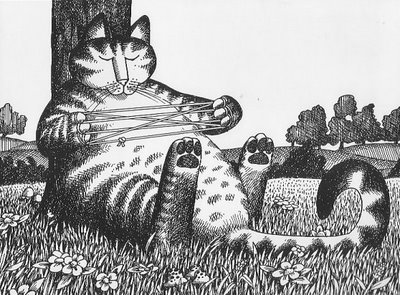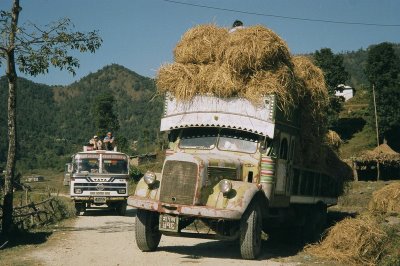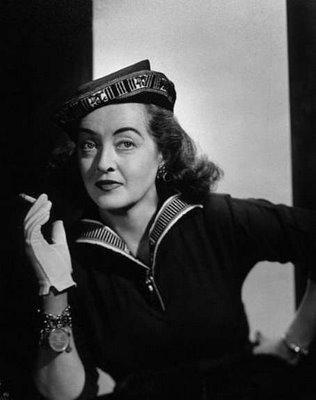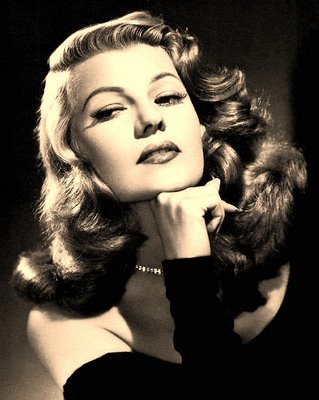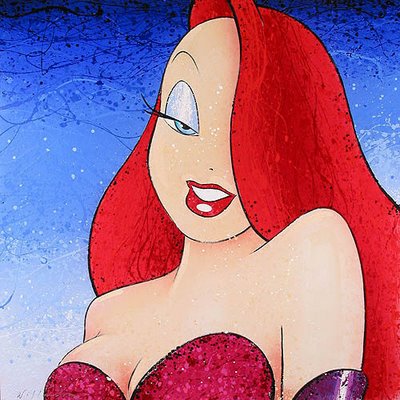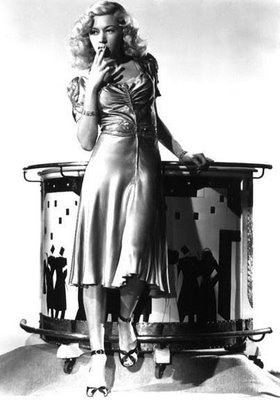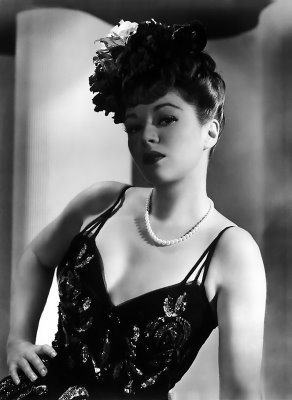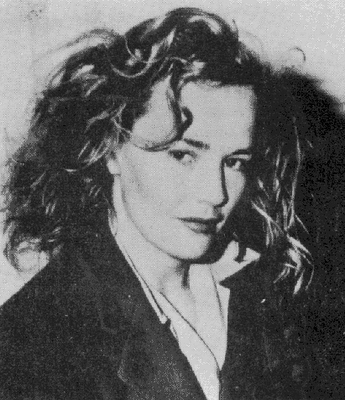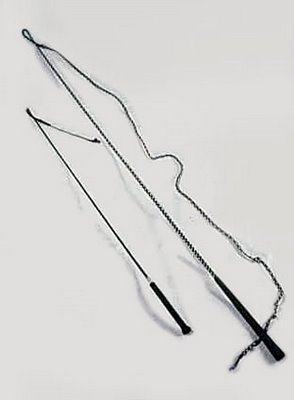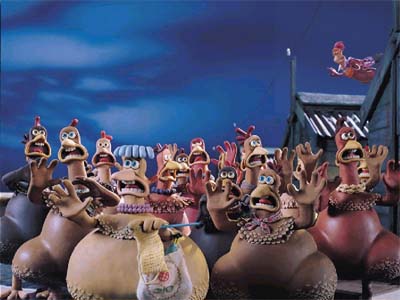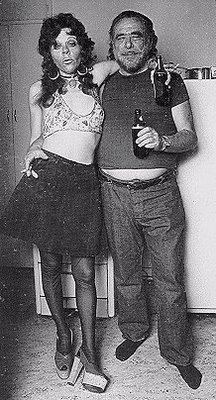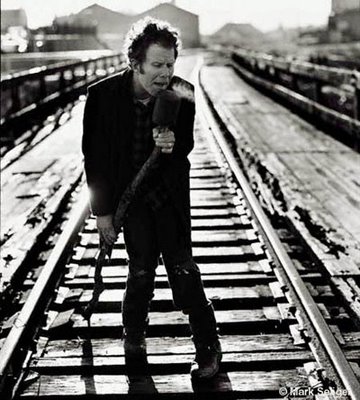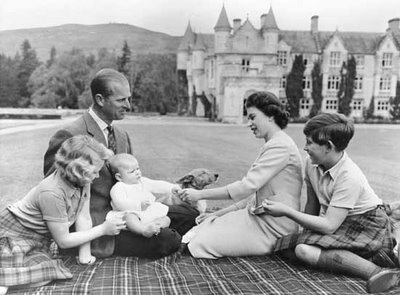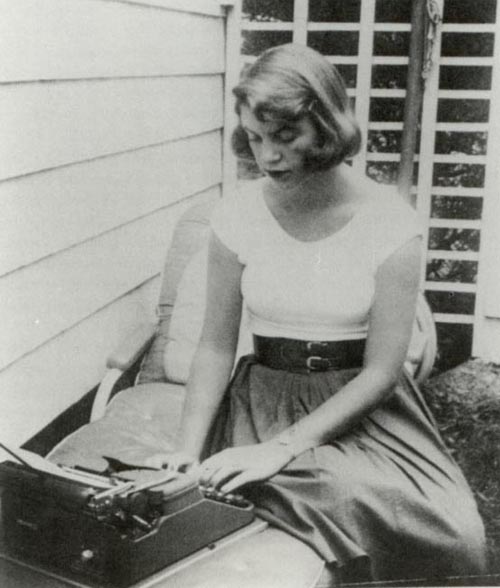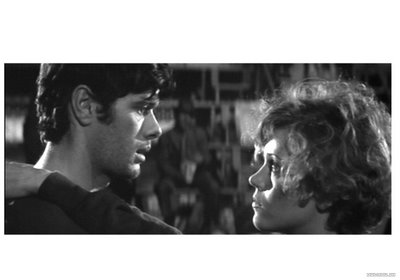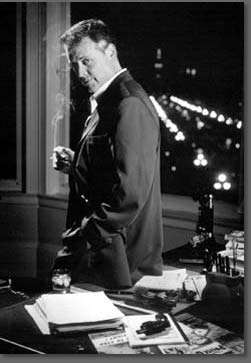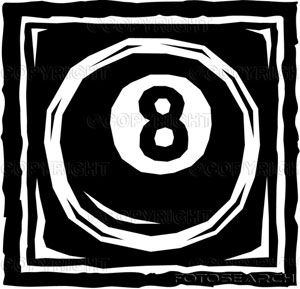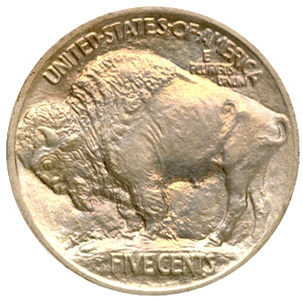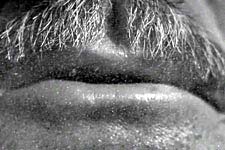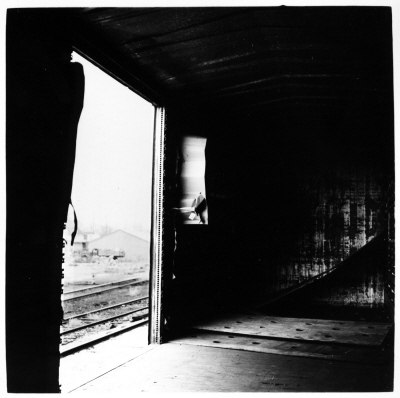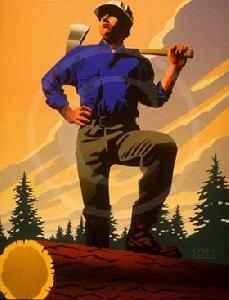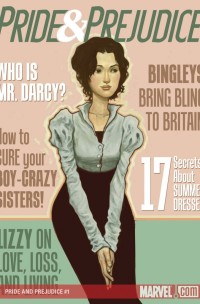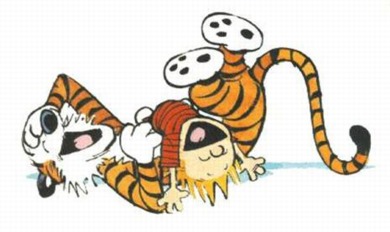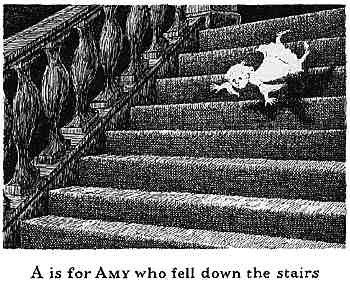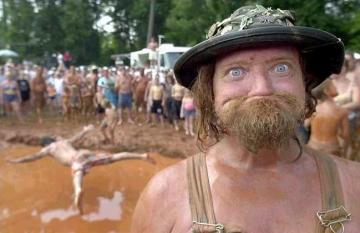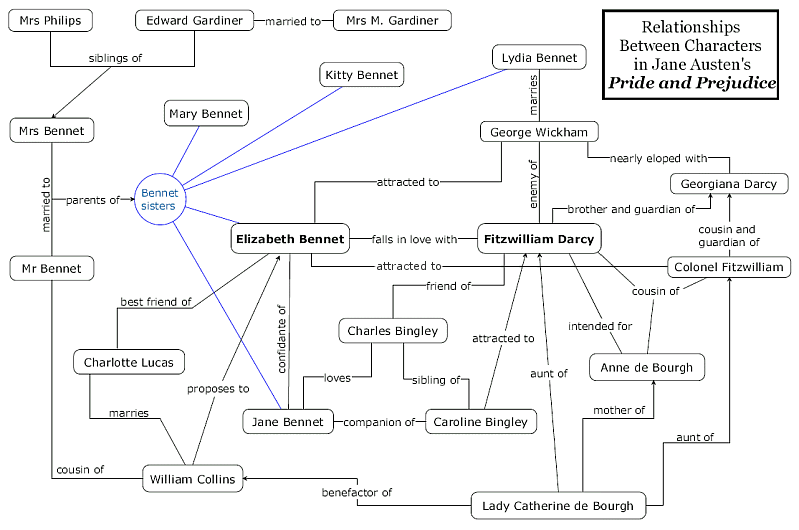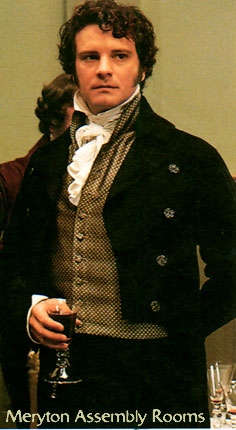by JT Ellison
Before I start the second installment of the Napa Valley travelogue, I have an announcement to make. Starting next Friday, we are welcoming a new member to Murderati. Stephen Jay Schwartz, a brilliant debut novelist, is going to join me on alternate Fridays. Stephen’s first novel, BOULEVARD, releases in September, and I was proud to offer an endorsement – it’s going to shake the fabric of the crime genre.
After more than three years, the rigors of weekly blogging have taken their toll, and I’m so grateful Stephen has agreed to share the load. He’ll be bringing the newbie’s perspective, and his column is aptly titled “The Newcomer.” You can learn more about Stephen’s world on our About page. Suffice it to say he’s a perfect addition to our merry band of bloggers. I hope you’ll show him all the great kindness that you’ve showed me over the past years.
Now, on to the wine. Here is the link to last week’s In Vino Veritas.
NAPA VALLEY – DAY THREE
Happy Birthday to me… We called this one the unbirthday.
We started with a drive up the 128 to Mumm Napa. What better way to start an unbirthday than with champagne? (And yes, I know this is really sparkling wine, real champagne only comes from the French champagne region.) We took a seat on the Oak Terrace, Mumm’s gorgeous new outdoor tasting deck, settling into the comfy red wicker, and were served our tasting flutes. Though since we were on the Oak Terrace, we were tasting from the Library Collection, and the flutes were full : )
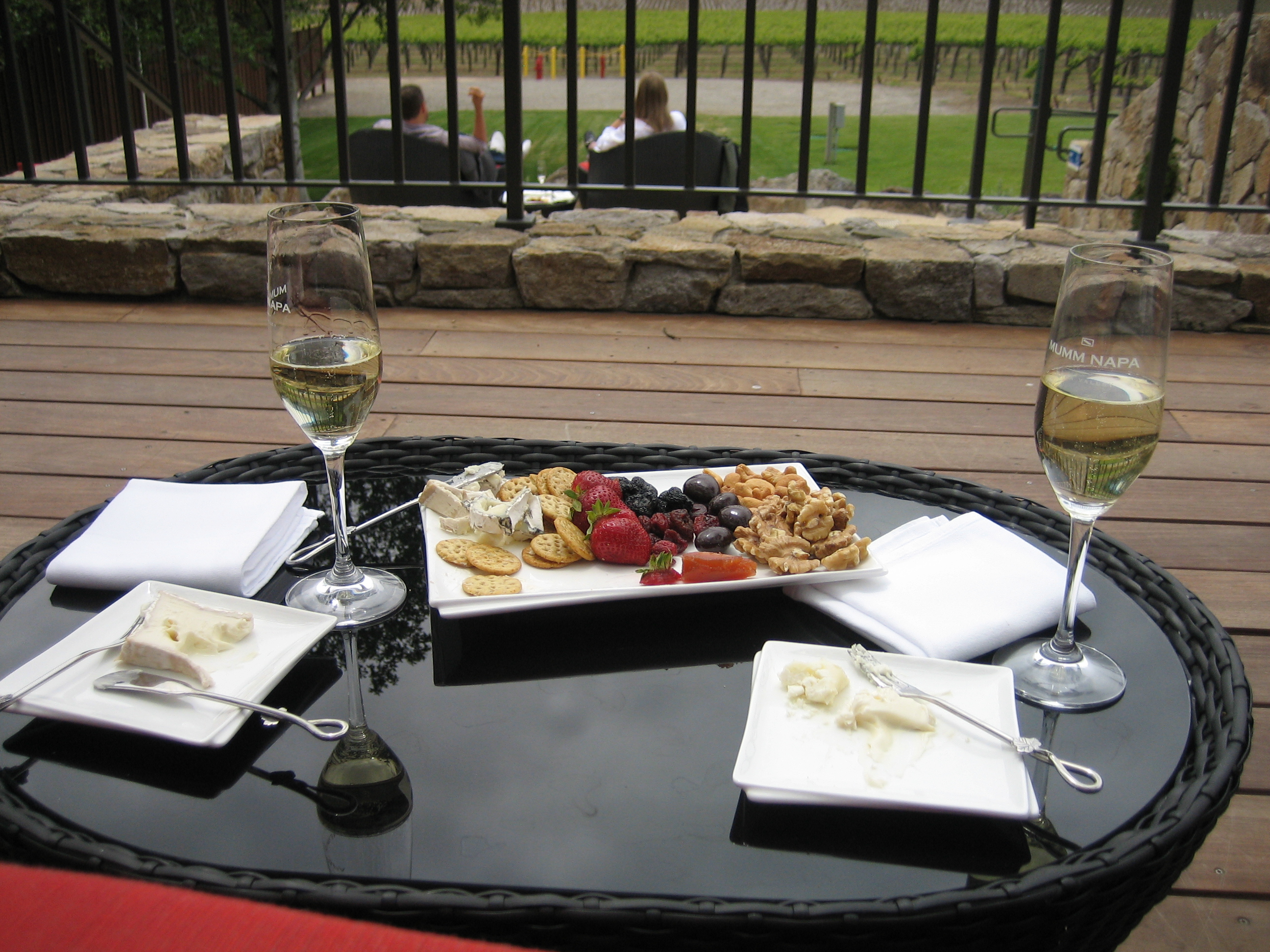
We started with the 2001 Blanc De Blanc. It was a classic brut sparkling wine, crisp and jasminy, with a lemon finish. I moved on to the 2000 DVX Rosé, which was redolent of red apples, and Randy tried the 2005 Pinot Noir. In order to make rosé, you need red grapes as well as white, so the pinots add just the right amount of pink to the glass. But I never knew Mumm’s bottles a pinot out of each season’s growth. That was the second excellent pinot of the trip – smooth and clean with strawberry, peach and tobacco notes.
Me being a complete lightweight, I was a wee bit happy at this point, (nothing like catching a buzz before noon – sheesh) so we had a small plate of crudités that included a divine chocolate covered strawberry and fresh strawberries. Outstanding.
 We headed off toward Cakebread then, but accidentally stumbled upon the Rubicon Estate. We’d been planning to hit Rubicon last, but since it appeared on our right, we decided to hit it first. Rubicon is the former Inglenook Estate and is owned by Francis Ford Coppola. You’ve seen me suggest the Coppola wines before, but this is the special place, the vineyard that houses the estate wines. Estate wines are generally older, more established vines that produce less fruit and subsequently, fewer bottles, which means they are more expensive.
We headed off toward Cakebread then, but accidentally stumbled upon the Rubicon Estate. We’d been planning to hit Rubicon last, but since it appeared on our right, we decided to hit it first. Rubicon is the former Inglenook Estate and is owned by Francis Ford Coppola. You’ve seen me suggest the Coppola wines before, but this is the special place, the vineyard that houses the estate wines. Estate wines are generally older, more established vines that produce less fruit and subsequently, fewer bottles, which means they are more expensive.
This was by far the most expensive stop, $25 per person for the tasting. They give you a passport, with the history of the estate and fun facts about the vineyard, and plenty of space for tasting notes. And the tasting – oh, my, the tasting.
We started with the 2007 Captain’s Reserve Chardonnay. Though neither of us are big white wine fans, this was very good, tropical and fruity. Then we moved to the 2006 Captain’s Reserve Pinot Noir. That was not what I’d call a very challenging wine. It was good, smooth, actually almost too smooth, and perfectly balanced, and tasted of raspberries and rose petals. The next was the 2005 Captain’s Reserve Shiraz. Now this got our attention. It was deeply purple, with boysenberry, black licorice, blueberries and sandalwood. It had a lovely nose and had fun tidbits – the grapes are only hand-harvested in the early morning hours, then cold-soaked for 48 hours to ensure the rich, ripe color.
Next was the 2005 Cask Cabernet Sauvignon. This was a monumental vintage for the Cask, and the wine was rich with blueberries, cherries, plum, vanilla and cocoa, and was very bold and spicy. Really excellent wine (we bought some to take home!) We tried the 2005 Rubicon too, a heavy cabernet with loads of pepper, raspberry and smoky wood notes. Just fantastic.
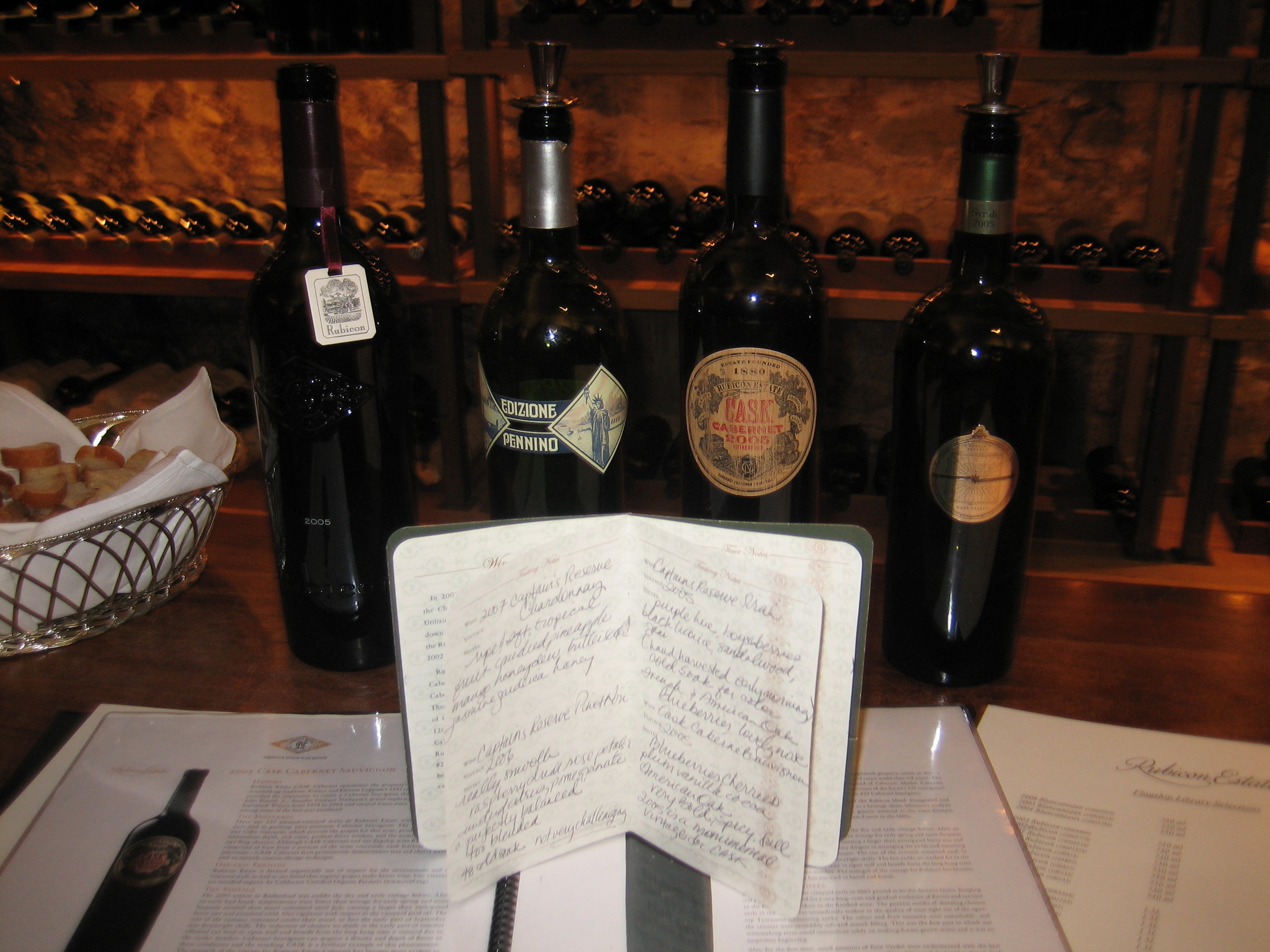
The last wine at the Rubicon was an add-on from our server, who was a delight – knowledgeable, pleasant and willing to share some insider secrets. We talked of the Nardi estate in Italy (my family name is Nardi, remember) and that Mr. Coppola had visited their wine-making operation. She suggested we write Mr. Coppola a note, which we did. (The funny thing was, I’m writing a note to one of the greatest filmmakers of all time and all I’m thinking about is how to express my deep gratitude for his endeavors into wine making. Should’ve slipped a card in, but I really didn’t think of it until we left. Oh well.) The wine is a homage to his grandmother’s side of the family and is called Edizione Pennino. We tried the 2006. This is an organically farmed wine, a Zinfandel varietal, soft and full, with white pepper, smoke, blackberries, blueberries and raspberry notes. We took some of this home too, it was lovely. And it was nice to have the opportunity to taste such a special wine, a wine that’s dear to the winemaker’s heart. Made us feel right at home.
And then we went to Cakebread. I know the white fans are drooling right now, but the two whites we tasted, 2007 Sauvignon Blanc and the 2007 Chardonnay, while good, didn’t make a lasting impression. I just don’t have a white wine palate, though I was assured by our tasting tour partners that it was a good wine. The tour itself was a bit uninspired too, with this being more focused on just getting some wine in the glass and into your mouth than any real education. I think the group was a bit too big, and a little unsophisticated, so things were kept on the top layer, so to speak. The 2006 North Coast Rubáiyat was very good, a pinot heavy blend. The 2007 Rubáiyat will be a Merlot blend, which I found interesting. The 2005 Red Hills, Lake County Zinfandel was great, lots of dark chocolate and purple fruits, and the 2005 Napa Valley Cabernet Sauvignon had all the elements of a great cab. It’s typical of the cooler parts of Napa, and was our favorite of the lot.
We had just enough time to hit one more, and let me tell you – choosing which vineyards to go to can be a bit daunting. There are hundreds to choose from. But the wonderful Preiser Key was a Godsend. It breaks the vineyards into appellations, so we could look for vineyards that did our kind of wine. We wanted to taste a California Sangiovesi (the grape that’s used in Chianti,) so we headed to Castello di Amorosa.
And boy, did we get a fun surprise! What no one mentioned was the name of this vineyard was quite literal – the estate is a castle. A 101,000 square foot medieval castle. Cue enchantment!
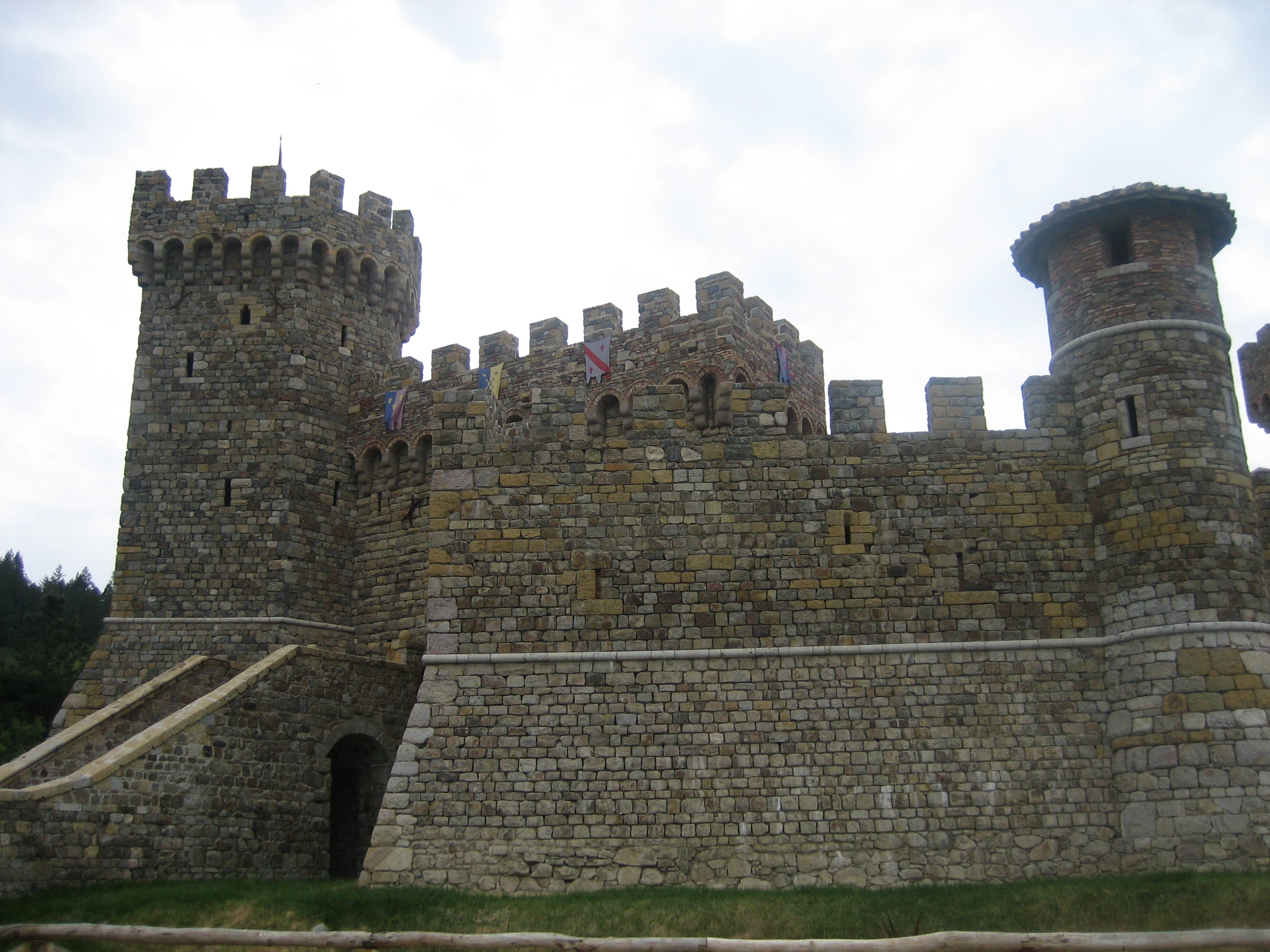
We scoured the castle, then went to the tasting. This was one of the estates with a wine club. We wanted to join a couple of clubs, but didn’t want anything that we could buy in stores. Castello di Amorosa is exclusive to their wine club members. Intrigued, we asked for a special tasting that would allow us to determine if this vineyard could be a contender. They didn’t disappoint. The 2005 Diamond Mountain Sangiovese was great – black fruits, supple oak, and vanilla notes. The 2005 Merlot was good too, but needed to breath to let out the spicy, peppery finish. We loved “Il Brigante”, a 2002 Cabernet Merlot blend, cherries, light oak, spices. It’s very dry, which we love. And the name means Little Thief – how can you not love it? The 2004 Cabernet Sauvignon was lovely – rich and fruity, then we moved off the regular tasting list and into the big dogs. “Il Barone”, a reserve cab, was excellent, but what sold us was the 2005 “La Castellana” Reserve. This is a beautiful Super Tuscan wine, absolutely outstanding. We signed up for the club and took bottles of Il Brigante and La Castanella home with us.
And now it was time for the dinner. We had reservations at a restaurant in Napa, so we hurried home, changed and set out for our fine meal. We were sorely disappointed: despite our 8:00 reservation, we weren’t seated until 8:30, and then it took another fifteen minutes for the waitress to take our drink order. It was noisy and crowded, not at all what we were looking for in an intimate birthday celebration. I won’t name the restaurant because I’m sure it’s normally great, they just looked incredibly understaffed, and that never speaks to a good experience.
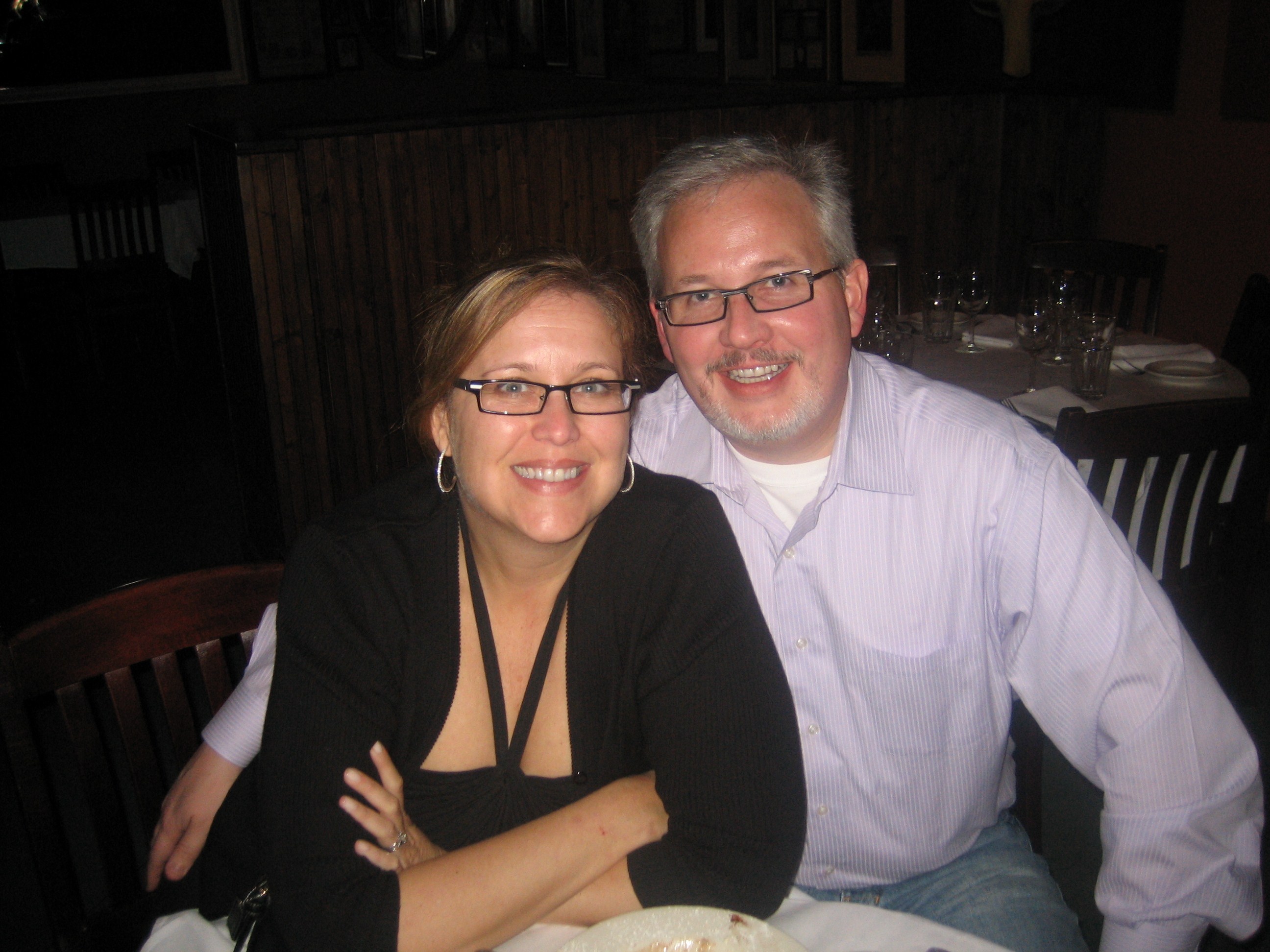
So we walked. We knew UVA was right around the corner, and we headed there. It was a chilly walk, but well worth it. The meal we had goes down in my top five best meals I’ve ever eaten. It was simple, rustic Italian fare made from fresh, local ingrediants – meatballs smothered in tomato sauce and mozzarella as an appetizer (it was their special, and it was fabulous,) chicken and mushroom carbonara, and a phenomenal tiramisu, accompanied by a bottle of L’Uvvagio Barbera, 2005 and homemade limoncello. They even threw in a candle and wrote Happy Birthday on the plate, and comped the desserts. Classy, and guaranteed that we will recommend them highly. Top it all off with another fire and one of my all time favorite movies, FRENCH KISS, and I call that a successful day.
DAY FOUR
We were at a bit of a loss in the morning. Truth be told, we didn’t want to leave. We needed to head to San Francisco later in the day, the forecast called for rain, and we hadn’t gotten ourselves into the heart of the Sonoma Valley yet. So we decided to Trust in Tara – our theme of the week – and put in an address we knew was on the north end of the Sonoma Valley. That way, we could drive, and anything we stumbled upon was fair game.
The drive was beautiful, though we got caught in the downtown district of Sonoma, which I thought was much more “city” than Napa. But when we cleared out of that, we were able to drive for about thirty minutes, gazing at the vineyards, feeling the slow seep of time. We spied a huge mansion in the distance, and the closer we got, the more interesting it looked. They had a sign that said Sangiovese in the front, so we stopped. (We really need a bumper sticker that says “I Brake for Sangiovese”.)
The estate was called Ledson. We’d never heard of it, and soon discovered that this was another wine club-only vineyard. Intrigued, we started the tasting. It was so nice to be inside looking out on the rainy day, to see the mist rolling through the valley, to be warm and dry on such a dreary day. We were in the capable hands of Austin Smith, wine consultant extraordinaire, who entertain as well as educated.

We chose an array of reds for our tasting, and got to work. I say work because it is, in a sense. Anyone can go into a tasting and drink wine. It takes some practice to be able to tell one wine from another, to ferret out your individual tastebuds, to be able to tell French oak from American. And trust me, with a little bit of training, anyone can do this. And to the folks in these vineyards, when they get a true oenophile at the bar, it’s like a light goes on inside them. They want to educate. They’ve got the finer details down, and are willing to share. I have to tell you, the most fun of the whole trip was being surrounded by fellow wine junkies.
We started with the 2005 Diamond Ridge Cabernet Sauvignon – lots of rose petals, blackberry and cherry, vanilla, with cranberries, cloves and toasted oak. YUM! Then were tried the 2005 Knights Valley Cabernet Sauvignon. Another excellent wine, with lots of leather, anise and lilac which tasted of chocolate and black berries. The 2005 Mes Trois Amour is the California version of an Australian GSM – that’s a blend of Grenache, Shiraz and Mourvedre grapes – with cocoa and smoke, rich cherry and smoked molasses. The 2007 Russian River Pinot Noir had the characteristic rose petal, strawberries and cherry nose that we’d come to expect from the pinots, but with a surprising caramel and pepper finish.
The 2006 Knights Valley Sangiovese was dry and spicy, and the 2005 Lodi Old Vine Zinfandel was incredibly jammy, with white pepper and plum and a touch of cinnamon. We had some of the 2005 Kinghts Valley Bellisimo, the gold medal winner in the World Wine Championships, that is a 57% Merlot 43% cab blend – luscious, fruity and spicy, and the 2005 Sonoma County Cèpage, which was smoky, leathery, with toasted oak and plums. Truly an excellent wine. The last one we tried was the 2006 California La Montagne, a 75% cabernet 25% sangiovese with raspberry, pepper, rose and lilac notes. It’s a Super Tuscan wine, and absolutely divine. We were sold. We joined the wine club, and Austin comped our tasting, a very nice touch.
And then we ate. Thankfully, there was the great little Café Citti right down the street, and we munched a pizza and cleansed our palates with salad and lots of water.
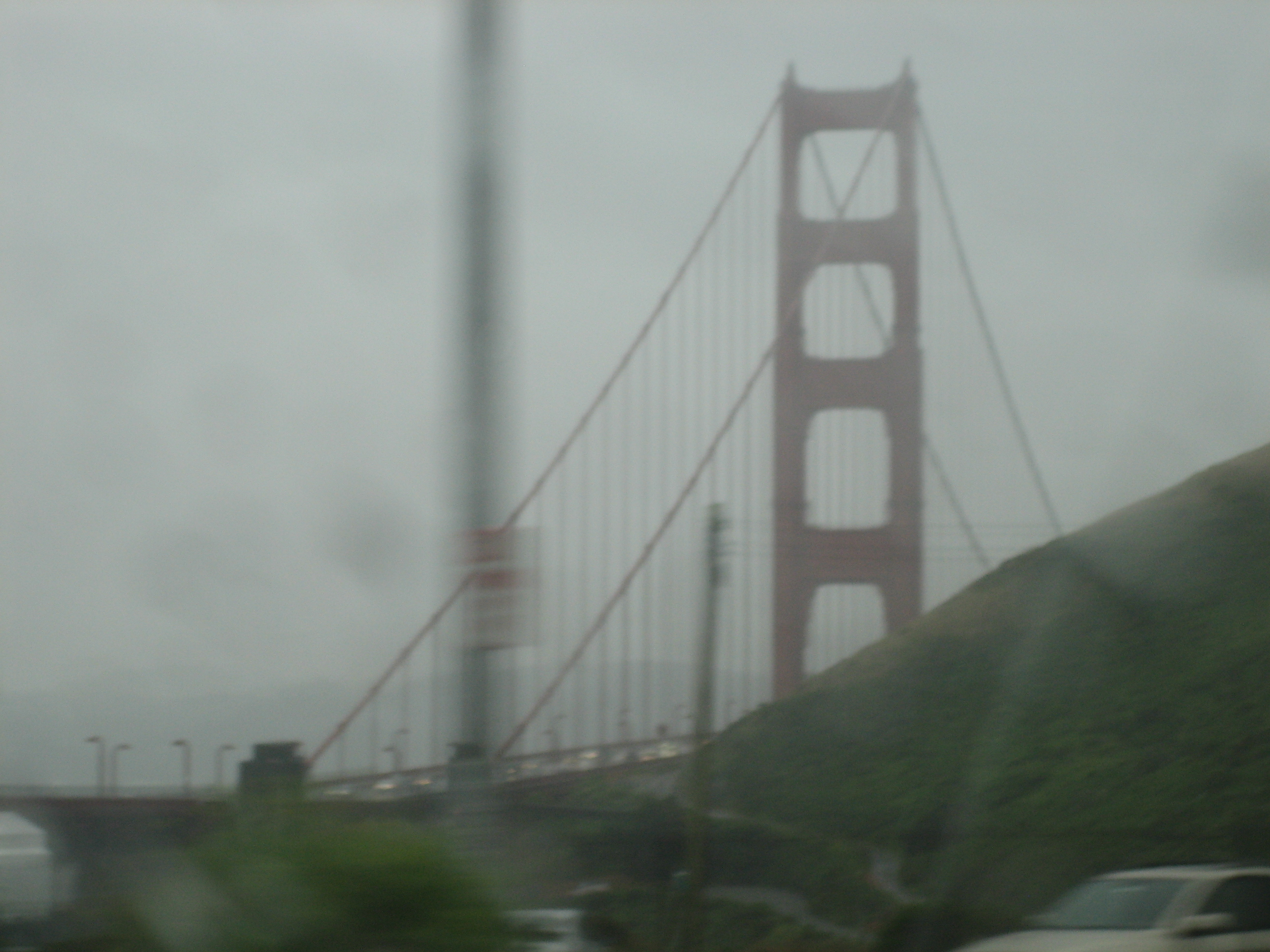
Declaring our trip a success, we headed into rainy San Francisco. It was too cool to drive the Golden Gate Bridge into town, but the shock of being in a city was a sharp contrast to the lazy, indolent days we’d spent in the country. We decided on the spot that we are definitely country mice, with the exception of New York.
We drove around San Fran and dined in the rain at Capurro’s on the wharf. I had clam chowder and crab cakes, and a lovely glass of 2005 Clos la Chance Zinfandel. Randy was dabbling in the pesto gnocchi again – I just can’t keep that man away from the gnocchi.
We did a minimum amount of strolling, got lost (Tara wasn’t happy with the heavy fog and kept sending us to the wrong street) so we accidentally ended up on Lombard Street. It was dark, but you can still see the crookedness. We did a run through the red light district (when I visited San Fran last, when I was 8, my dad got lost and ended up on that street. Twice. My mom was having kittens.)
Back at the Grand Hyatt, we had a cappuccino and birra in the lounge, then went back to our room. Looking down into Union Square, we saw a group of people, all dressed in black, looking like they were doing a protest. We found out a few minutes later that we were watching anarchists who’d just cracked windows all over the shopping district, causing thousands of dollars in damage. Um, yeah. Way to make a statement, guys – cracking a window at Neiman Marcus while wearing a ski mask is sure to change the world.
DAY FIVE
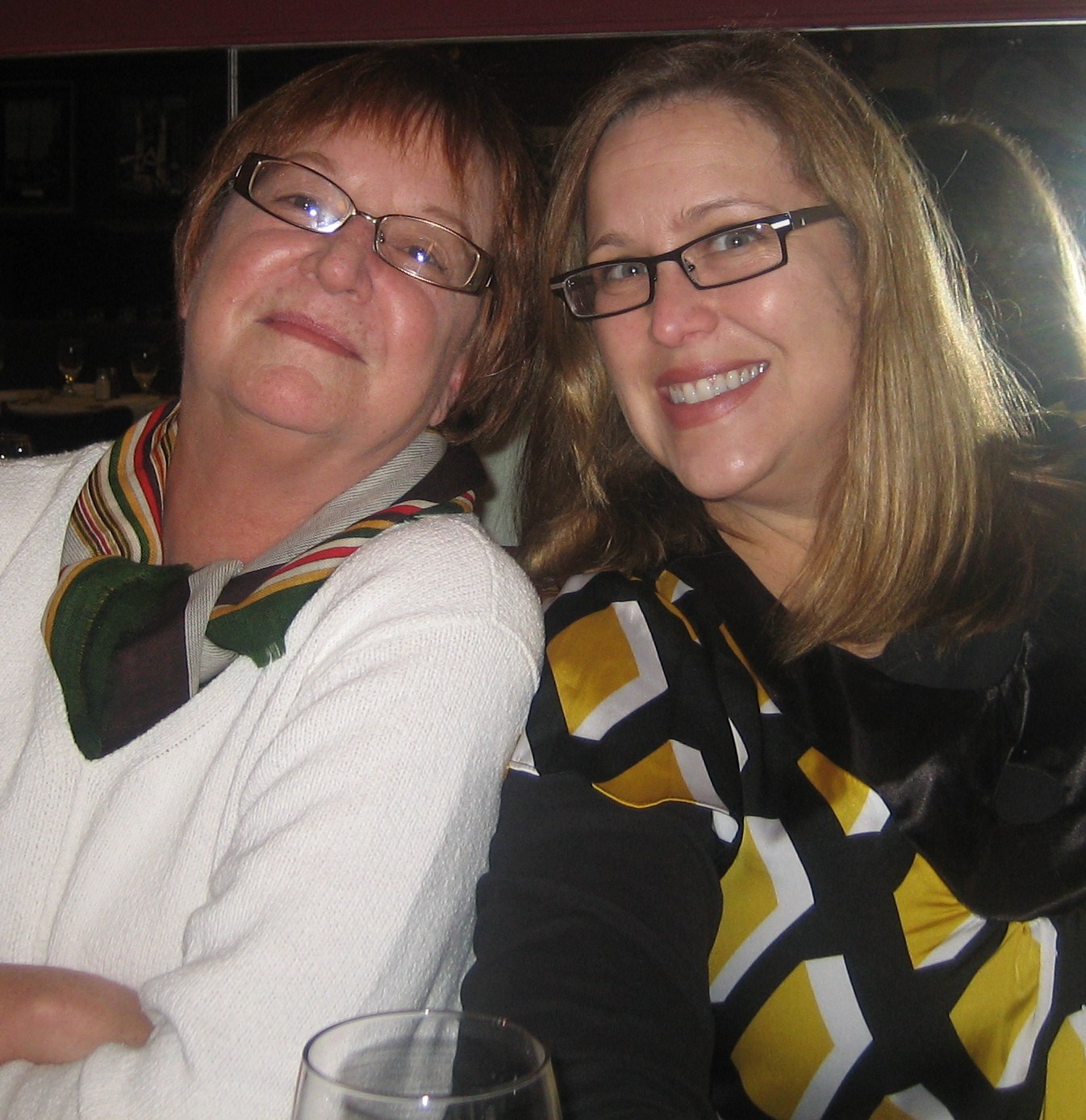
We had very special plans today. At noon, we were meeting our dear friend Louise and her sweet hubby Bruce for lunch at the Washington Square Bar and Grill. After we packed and managed to get the multiple bottles of wine we bought along the way shipped home, we headed to Washington Square.
Our dear Louise looked lovely, and kindly gifted me with a San Francisco compass, which I desperately needed. We had a brilliant meal (try the fish and chips, they are croquettes and really yummy) and a plain old fashioned cellar merlot. I was actually a bit wined out, if you can believe it.
After a couple of scintillating hours in our dear friends’ company, it was time to go home. We drove across the Bay Bridge into Oakland, and the fairy tale ended. Alas. But out luck held – even though we were an hour late turning the car in, they didn’t charge us an extra day. Southwest was on time, as always, and we got home safe and sound to a very, very happy kitty.
Bottles of wine have been rolling in, with almost daily visits from UPS. Our cellar restocked, now we’re planning our next outing. Italy? Oregon? Wherever we go, we’re sure to find good food, good wine, and make new friends.
More pics of the trip can be found here and here. Thanks for taking the journey with us. A new decade has begun, and I hope it brings great joy and success to us all.
 Studio
Studio Second Career? Doubtful…
Second Career? Doubtful… Scott Brick and Me
Scott Brick and Me Me, Scott, Tony Hudz, and Rob
Me, Scott, Tony Hudz, and Rob
